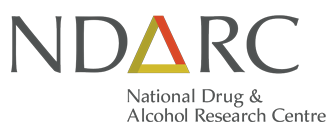
The fifth European Conference on Addictive Behaviours and Dependencies (Lisbon Addictions) was held in Lisbon from 23 – 25 October 2024. The event showcased leading research in the specialist areas of illicit drugs, alcohol, tobacco, gambling and other addictive behaviours.
Postdoctoral Fellow, Dr Calvert Tisdale was among NDARC’s cohort of attendees and presented ‘Suicide-related service presentations following residential treatment for substance use disorders: A data linkage study’.
Here, he shares his experience.
In October I had the opportunity to travel to Lisbon, Portugal to attend the fifth European Conference on Addictive Behaviours and Dependencies (Lisbon Addictions) coordinated by the European Union Drugs Agency (EUDA) and several other organisations. Lisbon Addictions is a multidisciplinary alcohol and other drug (AOD) conference showcasing innovative frontier research in the field. Leading experts consisting of researchers, professionals, and lived experience experts are invited to present work specific to the European context, as well as work conducted globally.
The scale of Lisbon Addictions is massive, with a smorgasbord of presentations and activities available. The overarching theme of the conference for 2024 was ‘Empowering the workforce of the future’, which was reflected in the emphasis on presentations examining different dimensions of the AOD workforce. However, this theme was not absolute, and many presentations did not maintain this focus.
In a session titled ‘Lives at risk: mental health and substance use’, I presented my recent publication investigating suicide ideation, self-harm, and deaths following residential substance use treatment through data linkage to several health services. The audience was engaged, offering new perspectives to my work through varying global contexts. Following my talk, Nicola Jones (also from NDARC) expertly presented their work on the impact of mental illness on opioid against treatment. The Centre was well represented in Lisbon, and I was lucky enough to also catch the presentations of Professor Michael Farrell, Dr Christel Macdonald and Dr Rachel Sutherland. On the final day of the conference, I attended the plenary session of ‘The Lancet Public Health Commission on gambling’, where work from our colleagues Scientia Professor Louisa Degenhardt and Lucy Tran was presented.
There was an incredible offering of research presented by leading experts available; however, the size of the conference was ultimately a double-edged sword. Unfortunately, with sixteen concurrent breakout sessions, many (assumedly) great presentations were sadly missed. And as presentation recordings were only available for plenary sessions, missing any of the fifteen other breakout sessions meant the presentations you were unable to attend were not available to view later, lost forever to the annals of time.
Having said that, the sessions I was able to attend were of a high quality, with all sessions approaching interesting and meaningful questions, often through novel methodologies with a high level of involvement and engagement from consumers and priority populations. Having previously attended in 2022, I noticed a greater presence of research that used linked data plus a greater amount of research that was co-designed with consumers.
Given the theme of the conference, several working groups were organised by the Workforce in Addictions – Valorisation in Europe Project (WAVE), a group developed by The Directorate-General for Justice and Consumers in the European Commission. I had the opportunity to join this group and collaborate on a multinational survey investigating AOD workforces across Europe, including Norway, Spain, and Portugal. Collaborating with this group, I established connections with like-minded researchers, professionals, and stakeholders across a global network of people interested in the wellbeing of the AOD workforce. At Lisbon Addictions, I met with these collaborators where we further developed and refined our work, which we are currently preparing for publication. From my involvement in this working group, I was also invited to chair a session at the conference which was a great experience and privilege.
Lisbon Addictions is a bi-annual conference that I am grateful to have had the opportunity of attending with support from WAVE and NDARC. If the core limitation of a conference is the sheer amount of interesting research on offer, then it is doing something right. Lisbon itself is an amazing city, and Lisbon Addictions conference is just another great reason to visit!




